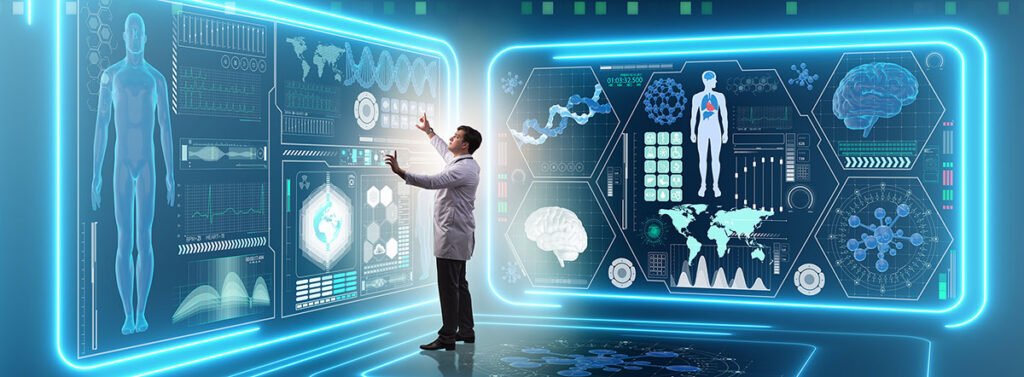
Expanded Partnership Will Integrate AI into EHR
On April 17, 2023, Microsoft and Epic announced an expanded partnership to begin integrating generative AI into EHR software.[1] The goal: improve the efficiency and accuracy of electronic health records for best patient outcomes.
Over the last few months, the public has seen an unprecedented explosion in Artificial Intelligence. It started in November when San Francisco-based OpenAI launched ChatGPT, an artificial intelligence chatbot. By January, the application had become the quickest consumer application in history to reach 100 million monthly users.[2] Since then, it feels as if AI has interrupted every industry in at least some manner. Healthcare is no exception.
Several years before ChatGPT, Microsoft laid the groundwork for their assimilation of AI into EHR software. In 2019, Microsoft invested $1 billion in OpenAI.[3] Since then, Microsoft invested another $2 billion in 2021, and in January 2023, Microsoft announced a third phase of their “long-term partnership with OpenAI through a multiyear, multibillion-dollar investment to…ensure these benefits are broadly shared with the world.”[4]
Meanwhile, over the years, Microsoft and Epic Systems have established a long-standing collaboration to integrate AI-powered solutions into EHR software. The newest step forward in their partnership delivers two innovative AI capabilities involving OpenAI: 1) drafting automatic message responses and 2) bringing natural language queries and interactive data analysis to clinical reporting tools.[5]
AI Generating Messages
Employing OpenAI’s generative text capabilities, EHR systems could eventually use machine learning to input missing information, make suggestions on diagnoses, and predict outcomes. But not just yet.
For now, the Microsoft and Epic partnership supports drafting message responses to patients, saving doctors time in responding to patients.
“This overall has incredible potential in our industry to reduce the administrative burden, to automate mundane tasks, and to give providers as much as that face-to-face time with patients as possible,” Garrett Adams, product lead for Epic’s Ambulatory Research and Development Division and member of the Cognitive Computing Platform team, said.
Adams stressed that the AI functions only draft messages. The doctor still needs to review and modify them as necessary. While AI may be “good at predicting the next word,” it isn’t meant to be perfect.[6]
UC San Diego Health, UW Health in Madison, Wisconsin, and Stanford Health Care are among the first healthcare organizations to implement such AI generative text functions.[7]
“A good use of technology simplifies things related to workforce and workflow,” said Chero Goswami, UW Health’s Chief Information Officer.” Integrating generative AI into some of our daily workflows will increase productivity for many of our providers, allowing them to focus on the clinical duties that truly require their attention.”[8]
Speech in Searching Through Data
Secondly, Epic and Microsoft have used generative AI in reporting tools to “enhance conversational support.” Now, doctors will be able to explore data with conversational queries.
“Our exploration of OpenAI’s GPT-4 has shown the potential to increase the power and accessibility of self-service reporting…making it easier for healthcare organizations to identify operational improvements,” said Seth Hain, senior vice president of research and development at Epic.[9]
Artificial intelligence can customize searches through conversation. Instead of filtering through the data repeatedly, AI allows time-saving searches by chat. Providers can speak with precision, detailing exactly what they want to find in their financial or clinical data, and the AI can answer with more precise reports.
Looking to the Future of AI in EHR
[6] Bergstrom, Maddie. “Epic, Microsoft Collaboration Will Bring AI Technology to Healthcare OpenAI Drafts Messages for Providers with Goal of Reducing Administrative Burdens.” The Verona Press. May 4, 2023.
